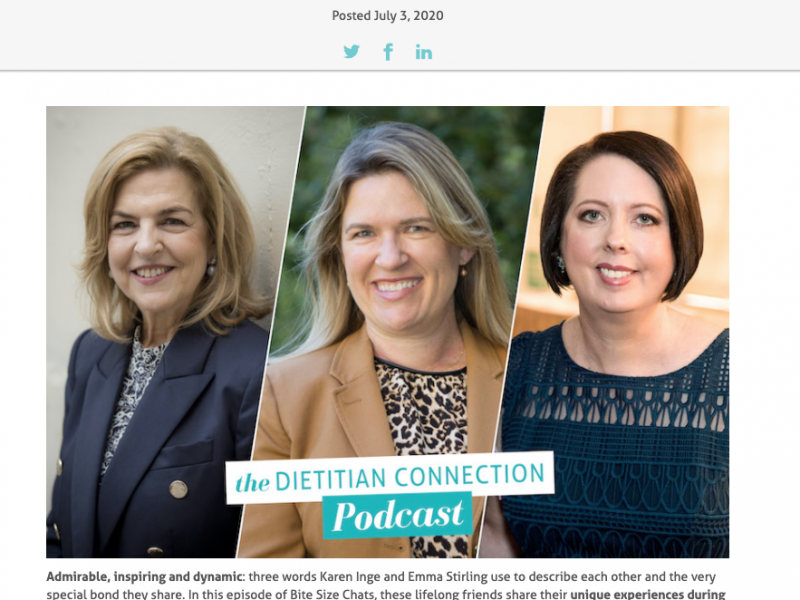May 13th -19th 2013, is Food Allergy Week. At Scoop Nutrition we do a lot of consulting work in this area helping chefs, restaurants and cafes become allergy aware and prepared. But our recent Sub of the Month, works weekly with patients in a busy allergen clinic, so we asked her to help with the must know facts we ALL need to be aware of. And share a favourite Allergen friendly recipe, that we ALL need to have on standby for friends, family or birthday parties.
About our expert:
Dea Krismarietta APD is a newly graduate dietitian from The University of Sydney. She started her first job as a private practice dietitian in an allergy and intolerance clinic in December last year. Since then, she has become interested in allergy-friendly baking. Dea also has her own blog, Grainddiction and is a member for the Recipe Redux.
A recent study has shown that 1 in 10 children today will develop a food allergy. It is an alarmingly high number and we need to increase awareness. The most common food allergies in childhood are cow’s milk, egg, peanut and tree nut. The foods that trigger 90% of food allergic reactions in Australians include cow’s milk, egg, peanut, tree nut, sesame, soy, wheat, fish and shellfish. You can support the “1 in 10” campaign this year, by painting 1 fingernail and donating to the cause. Why not host a fingernail painting fundraising event such as morning tea at home or work? You can also become more allergy aware by reading these must know facts. Go on. Do it now.
 Myth: Food allergy can be cured, by giving a little quantity of the allergenic food every other day.
Myth: Food allergy can be cured, by giving a little quantity of the allergenic food every other day.
Fact: Food allergy is an immune response to food protein, which the body mistakenly thinks is harmful. When someone is allergic to a particular food, for example cow’s milk, it means that they can’t tolerate the protein in cow’s milk. In essence, their body thinks cow’s milk protein is harmful, and orders their immune system to attack, causing an allergic reaction. The reactions vary from hives, swelling, eczema, and vomiting to anaphylaxis or life-threatening reactions involving breathing difficulty and tongue swelling.
To date, there is no cure for allergy although a lot of research is ongoing. Avoidance of the allergenic food is the only management. Some allergies can be outgrown but not cured. It is certainly NOT safe to give ANY quantity of allergenic food, at any point of time. Small or trace amounts of allergenic foods are enough to trigger a reaction in very sensitive people. Some reactions such as hives, itch and rash might be manageable with a pop of anti-histamine; however more severe anaphylactic reaction can be fatal and are managed with an injection of Epinephrine (generally known as EpiPen/AnaPen) and a trip to the Emergency department for observation and management.
Jump across and grab a copy of the Food Allergy Week Info Pack.
Myth: Once allergic, forever allergic
Fact: Some allergies such as cow’s milk and egg allergies are usually outgrown. Literature suggests that 92% of children with cow’s milk allergy develop tolerance or will outgrow it at 5 years of age. For egg-allergic children, approximately 50% can tolerate egg by 3 years old and 66% by 5 years old. However, it’s not the case for nuts allergy. Only 20% outgrow their nuts allergy.
Myth: I think my child has an allergy. I don’t need to seek any help. Just stay away from it and my child will be fine.
Fact: No way! If you suspect your child has an allergy, it is strongly recommended you seek advice from immunologist or allergy specialist paediatrician and an accredited practising dietitian (APD). Why? The allergy needs to be properly diagnosed, and you may need an action plan +/- Epipen/Anapen. You need to know what to do in case of emergency- in case your child has a reaction. You’re also advised to do a regular consult, once a year, to check if the allergy changes.
You also need to see an APD to ensure nutritional adequacy. Babies and children with allergy are in a phase of rapid growth and development. It’s easy to remove a food from the diet but care needs to be taken to replace essential nutrients for appropriate growth. An APD can help you choose the right foods and formula, if your baby needs one, educate on strategies for living with an allergy and reducing the risk of future reactions, including what to watch out when you buy commercial food products or dine out in a restaurant.
Chocolate Cupcakes with frosting- Egg free, milk free, gluten free, corn free
Finally, I really want to share with you my favourite allergen friendly cupcake recipe to have on standby. I love all the recipes in this blog, Free Eats, as they are all well tested and work every time. Keep it bookmarked for the next party. And don’t forget to paint 1 in 10 of your nails a different colour this week.
Source: freeeatsfood.com via Emma on Pinterest
Editor’s comment:
Thanks Dea. It was great to have you on board as a Sub of the month. Keep up the blogging! How about you lovely readers? Have you got a question for Dea? If you’ve painted your 1 in 10 nail, how about adding a pic to our comments below. There’s a tiny little picture image on the left corner of the comment box, click on it to upload a photo. And spread the word on twitter with #1in10
Reference: Carina Venter SHA. Epidemiology of Food Allergy. Pediatric Clin N Am. 2011;58:327-49





